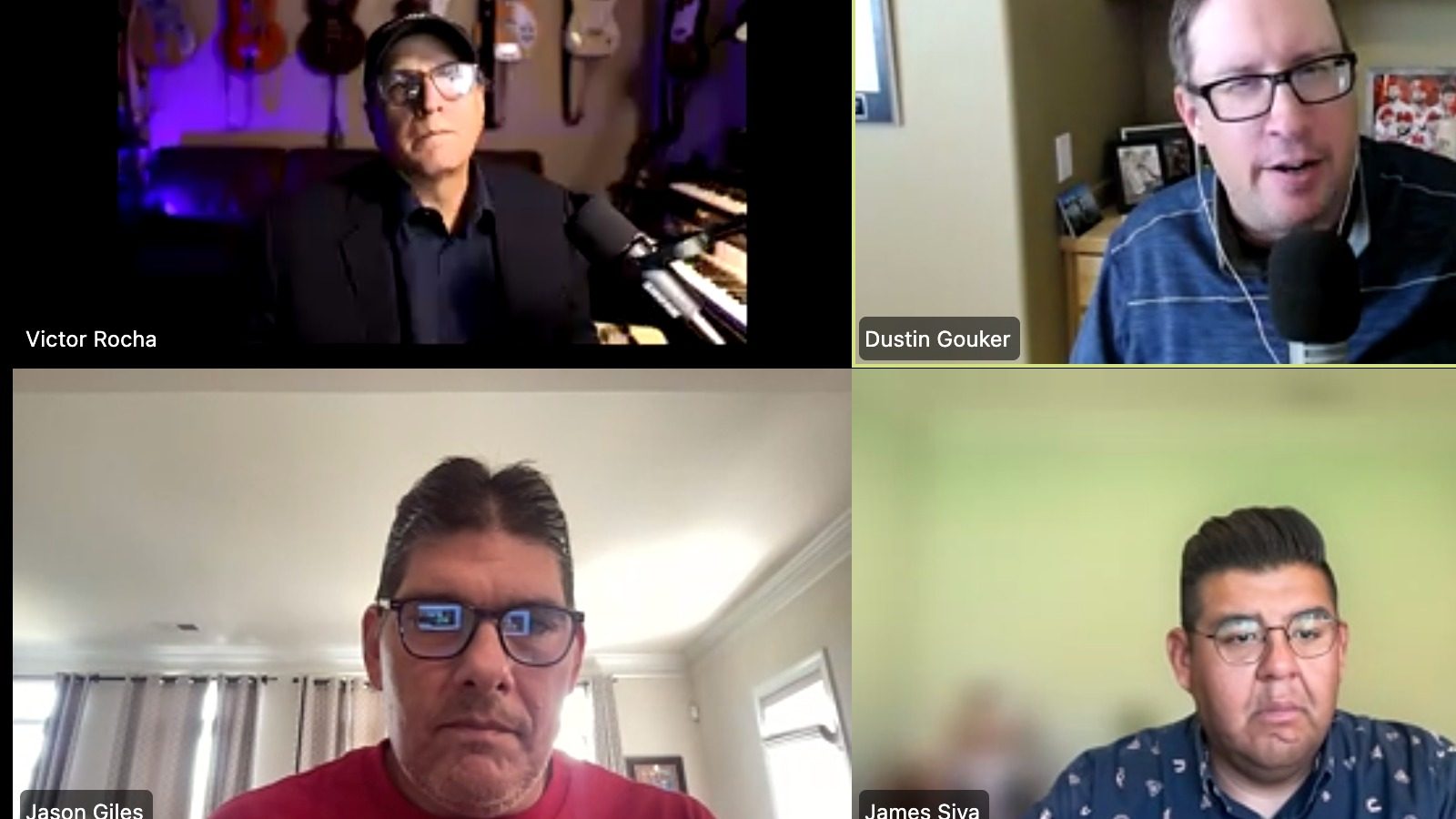As Commercial Operators Allegedly Try To Divide Tribes In California, Tribal Leaders Say Strategy Will Fail
Anti-sweepstakes bill continues march through state legislature, could reach Senate floor Friday
4 min

In the last two weeks, two California tribes have broken ranks. Monday, the chairman for Big Lagoon Rancheria wrote a letter to the California Senate’s appropriations committee asking it to “pause” consideration of AB 831, the bill that would ban sweepstakes in the state. And Aug. 19, it was reported that the Kletsel Dehe Wintun Nation of the Cortina Rancheria had signed a deal with sweepstakes operator VGW.
Dividing the tribes is a strategy commercial business have long employed in California, and elsewhere. But it’s a curious one, say tribal leaders, as historically, the strategy hasn’t worked.
“What is it when you do the same thing and get the same result?” asked New Normal host Victor Rocha during his webcast Wednesday. “Stupidity. … This gameplan is worn out. It just shows the lack of imagination.”
Rocha was joined by co-host Jason Giles, executive director of the Indian Gaming Association; James Siva, chairman of the California Nations Indian Gaming Association (CNIGA); and gambling analyst Dustin Gouker, on an episode titled “Sweepstakes, Prediction Markets, and the Fight for the Future of Gambling in California.”
The group touched on three key topics California’s tribes are currently addressing: daily fantasy sports (DFS) contests, prediction markets, and sweepstakes.
Changes in DFS in California
With regard to DFS, the gambling industry is awaiting additional movement following Attorney General Rob Bonta’s July opinion that many contest types in which customers play against the house are illegal in the state. PrizePicks changed its business model to peer-to-peer wagering in California ahead of the opinion, and Underdog Sports changed it after. Bonta promised enforcement action of his opinion, but that has not materialized.
“CNIGA asked if there is a plan, timeline for enforcement,” Siva said. But he said there has so far been no reply. He went on to say that it will be “hard to get enforcement anytime soon” with the sweepstakes bill moving through the legislature. His expectation is that Bonta will wait to see if AB 831 passes, and what the response to that will be before potentially taking action against DFS operators.
PrizePicks extended the change to peer-to-peer wagering nationwide Wednesday.
With regard to prediction markets, there was spirited discussion about how that issue has brought tribes and commercial operators onto the same “side” of an issue, and how the longer prediction markets operate in California and elsewhere, how much more entrenched they will become.
“This was all about arbitrage, the government is in disarray, so you run through and get what you can get,” Rocha said. Since President Donald Trump took office in January, Kalshi self-certified to offer sports event markets in time for the Super Bowl. It was the first time in U.S. history those markets were offered.
With NFL season on the horizon, several other platforms are poised to offer sports event markets on their own or in partnership with Kalshi. And FanDuel announced last week a partnership with CME to build its own prediction market.
Tribes must align, protect sovereignty
But much of the discussion Wednesday was around the rise of what the tribes call illegal sweepstakes models. They argue that these unregulated platforms are cutting into their business, and strongly support AB 831, despite two tribes going against the grain.
Siva said that unregulated sweepstakes platforms — on which consumers can play casino games and bet on sports — are the foe that will most cut into the California tribes’ exclusivity to gaming and bottom line.
Given the number of tribes (100-plus) and widely varying economic situations, Siva said it’s on his organization to continue to educate and support small, non-gaming tribes. But he is worried about how every attempt to divide California Indian Country is also a threat to the sovereignty of all tribes.
Siva (Morongo Band of Mission Indians) and Rocha (Pechanga Band of Luiseno Indians) are members of two of the most successful gaming tribes in the state.
“I don’t blame the tribes that make these decisions that are best for them,” Siva said. “Collectively we have done so much to improve the lives of tribal communities across California. But it’s about reminding everyone that we are sovereign nations. … With these agreements, [commercial operators] are trying to weaken that. Tribal gaming is as different as commercial gaming as can be, and that is why they try to pick off these smaller tribes.
“We can do better outreach, so tribes know that you can’t trust them. … They’re trying to get you to sell the very thing that makes you different from everyone else. We can do this together, why would you trust an outsider? It’s just another hollow attempt to slow this process down.”
Siva is confident that AB 831 will become law. The bill is currently in “suspense” in the Senate Appropriations Committee, but could be moved to the Senate floor as early as Friday.
Sweeps bans elsewhere
Rocha called out sweepstakes investor Chris Grove and VGW founder and CEO Laurence Escalante, saying that he is surprised sweepstakes investors “think that with all of these states that they are going to shut them down that California will play nice.” In the last few months, legislatures in Connecticut, Montana, Nevada, Montana, and New Jersey have passed laws banning sweepstakes gaming.
Rocha also pointed to a conflict of interest with regard to a study done by Eilers & Krejcik for the Social Gaming Leadership Association (SGLA) that was shared in testimony during an AB 831 hearing. Grove is a partner in E&K, and Rocha suggested that information should have been disclosed during testimony from the SGLA.
Gouker suggested that some “early adopter” sweepstakes companies were trying to operate within the rules, but quickly changed course, given the forum: “There are ones that are trying to run sweepstakes legitimately, and ones that aren’t,” he said. Looking around at the faces on the screen, he said, “Oh, you guys don’t think there are any good ones. … So maybe there are better ones, and then there are those who are pushing the envelope.”
No matter the semantics, Giles wondered why there hasn’t been as much pushback nationwide as he’d expected. Gouker said he believes the “industry has come out against it,” but also reminded Giles that just like the tribes, commercial operators have their hands full with how to proceed with prediction markets and how to change course depending on the California DFS opinion.
“There’s a lot of things coming at us all at once,” Gouker said. Dealing with “prediction markets is an easier lift because there is only one way to attack it and there is one central agency. But with sweepstakes, it’s like whack-a-mole.”






